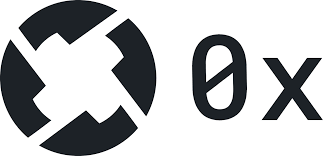
0x is a protocol that allows ethereum applications to communicate with each other. This will allow them to create a decentralized exchanges for users to trade tokens.
Recall that Ethereum is a platform which allows people to build their own blockchain applications. This includes coins. In order for people to exchange coins, there are a variety of decentralized exchanges. The problem is that many exchanges are placing their order books on the blockchain. Every time an order is placed, users have to spend a fee to add their transaction to the blockchain. If an order is added, cancelled or changed, then users will have to pay a fee each time. If the market fluctuates too much, these fees will add up for users.
There are a few solutions to reduce the amount of times transactions are posted to the blockchain. One solution is to use a smart contract (AMM) that keeps track of the pricing, instead of relying on the blockchain. Another solution is to move these transactions “off chain” into something called “state channels”. State channels allow people to create transactions off the blockchain, and only submit them after everyone is in agreement. However, both of these solutions have problems. In order for “state channels” to work, they have to be online at all times. This means they are more likely to be attacked by people who will prevent them from staying online. AMM (Automated Market Makers) are only effective if the price-adjustment is accurate. This is needed to make sure that the price doesn’t fluctuate too much.
0x wants to implement a hybrid solution. Users place orders off-chain and will interact with the blockchain via smart contracts.
The protocol includes relayers who will broadcast orders for users to buy and sell. Relayers can set their fees, but users who want to place an order must agree to the fees before they post an order. Only users can initiate an order. The protocol also includes point to point messages, which allows people to privately message each other in order to trade coins. Once users decide to trade coins, the trade has to go through smart contacts. The smart contract in use has two main functions: to fill the order or to cancel it. If users decided to use relayers, the relayers will only place a call to the smart contract after buyer and seller submit valid orders.
The token will be used to keep the protocol’s smart contract updated and to help users pay fees to the relayers.
Good job...
Congratulations @altcoinbeast! You received a personal award!
Click here to view your Board of Honor
Congratulations @altcoinbeast! You received a personal award!
You can view your badges on your Steem Board and compare to others on the Steem Ranking
Vote for @Steemitboard as a witness to get one more award and increased upvotes!